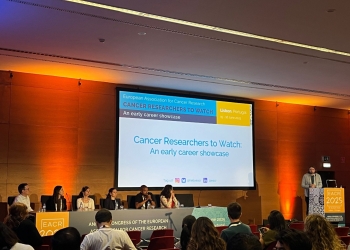Lung cancer is one of the leading causes of death for both men and women in the US, in part due to late diagnosis. Screening programmes based on chest low-dose computed tomography (LDCT) are in place, but the uptake by the public is low. This is in part due to limited access, concerns for radiation toxicity associated with repetitive CT imaging, limited availability of specialist follow-up and same-day point-of-care scheduling
leading to increased anxiety following the detection of lung abnormalities. The introduction of a blood test as a pre- LDCT screening evaluation tool has the potential to expand lung-cancer screening.
.
The blood test was trailed on 958 individuals from 47 centres across 23 states in the United States, 576 samples being used for training the algorithm and 382 for validation.
The proposed approach is based on the DELFI (DNA Evaluation of Fragments for Early Interception). Low coverage (∼3×) whole-genome sequencing was performed on 504 nonoverlapping 5 MB regions, spanning 2.5 GB of the genome and comprising ∼80,000 fragments each. Fragmentation profiles from lung cancer patients displayed extensive genome-wide variation and comprised of a mixture of cfDNA profiles from peripheral blood as well as from the tumours.
.
During clinical validation and following normalisation of the test results to the population normally eligible for screening, the test showed an overall sensitivity of 80%. Sensitivity increased with cancer stage from 71% for Stage I cancer to, 89% and 88% for stages II and III and 98% for stage IV. The overall specificity was of 58%. This proportion of false positives is considered acceptable by the authors given that the blood test is designed as a pre-screening evaluation tool and all positive results would be followed with LDCT screening.
 Summary of the findings
Summary of the findings









